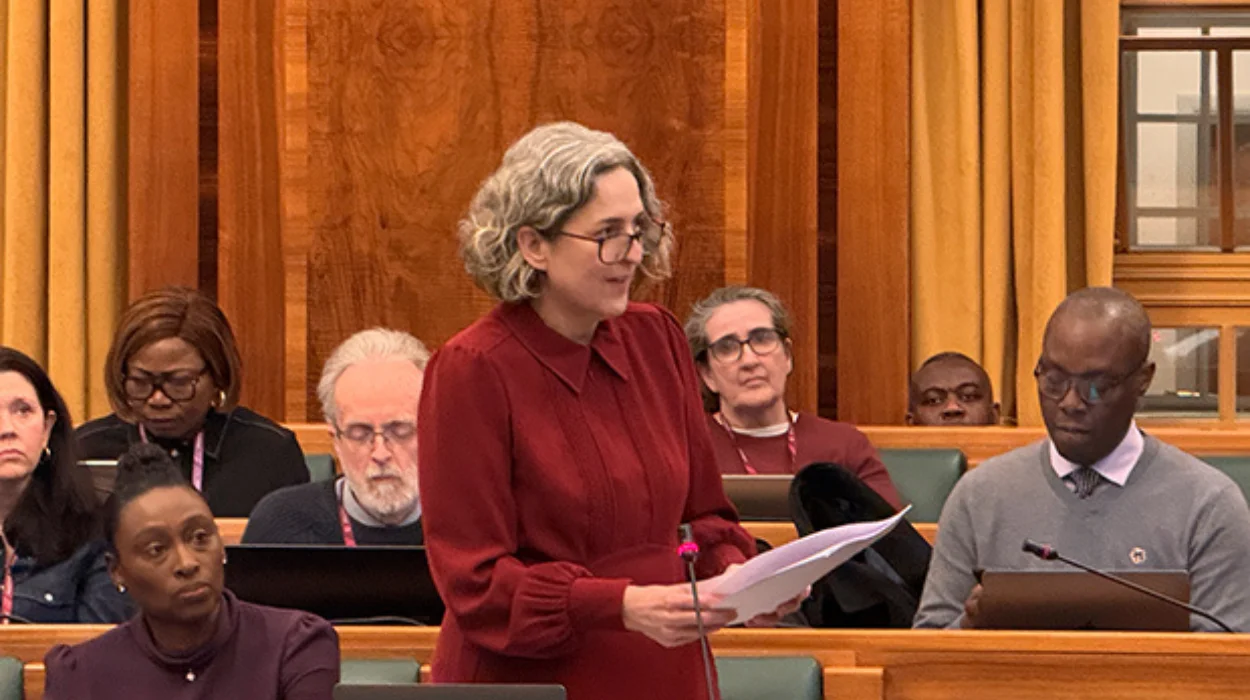Hackney (Parliament Politics Magazine) – Hackney Council reduces £67m budget gap with central government aid, despite criticism over ongoing service cuts, says Mayor Caroline Woodley.
Following a “careful use of reserves” and a cash infusion from last year’s local government finance settlement, Mayor Caroline Woodley disclosed at the Town Hall’s annual budget meeting last night (February 26) that the amount praised in November has now decreased by more than 20%.
Dylan Laws, an 18-year-old resident, had questioned why the council was implementing “£67m in austerity” over the next three years, claiming that this went “directly against what was promised.” Her announcement was in reaction to his query.
The mayor said it was hard to reverse the “harm inflicted on Hackney” by £150 million in lost funds since 2010, blaming the previous administration directly.
The mayor said:
“We do not want to live under austerity. We want to focus on growth,” she said, but Laws asked her if she felt it was “hypocritical” to plan for cutbacks up to 2028 after heavily criticising the Conservatives for the same thing.
I don’t feel hypocritical at all because I’m focusing on ambition and I’m focusing on growth.
We want to work with our residents to do better and we will not continue under austerity.”
The council, pointing to the additional £25 million in funding for the borough, has previously denied that it or the national Labour administration is maintaining austerity.
However, the mayor and her finance chief, Cllr Robert Chapman, have frequently emphasized the necessity for “tough decisions” and “financial responsibility” in light of the skyrocketing demand for basic services like housing and social care.
Independent Socialist councillor Penny Wrout said:
“Keir Starmer is a London MP representing an inner city constituency. You’d think he represented a rural backwater for all the awareness that he shows of the issues.
Where are his values? Because they’re not the same as Hackney’s values.”
The budget, according to Mayor Woodley, embodied the “Labour values” of putting justice first, safeguarding the weakest members of society, and “working to assure no-one in our communities is left behind.”
In reference to the £15 million in anticipated cuts across all departments for the upcoming fiscal year, she stated that “transformation and doing things differently” would be used to solve a large portion of the now £51 million shortfall.
Up to £1 million is anticipated to be cut from the 2025–2026 budget for the community and voluntary sector, as previously reported by the Citizen.
According to the council’s assessment, this has already raised concerns about Hackney Carnival’s future and may endanger its ties with organizations that support the Black, Global Majority, and Charedi communities.
The chief executive’s office, which is in charge of managing the local authority, is also expected to reduce almost £3 million in order to create a “smaller, more efficient” council.
This will mostly be accomplished by reducing grant funds, automating council functions, and reducing the staff.
The council was seeking assistance from a “transformation consultancy” to accomplish its objectives, according to the Town Hall’s medium-term financial report.
Although council members have questioned whether this would mean the borough’s current number of children’s centers could remain open, Hackney is also saving £2 million by substituting the government’s early years entitlement for its own childcare subsidy.
What specific measures are being taken to address the increasing demand for housing in Hackney?
Upzoning is one of the measures that governments are using to boost housing density, particularly in regions that are currently designated for single-family houses. By permitting the construction of additional units on existing land, this can contribute to an increase in the supply of affordable housing.
For housing development, local governments are exploiting property that is owned by the government. This entails locating surplus or underutilized real estate that may be used for affordable housing initiatives.
Both the supply and demand sides of the housing market are being stimulated by financial incentives like tax breaks and low-interest loans. These incentives have the potential to lower development costs and lower the cost of housing.
Initiatives for community-led housing that emphasize inclusive and participatory methods of housing development are welcomed. This involves making sure that land and reasonably priced supplies are available for community initiatives.


